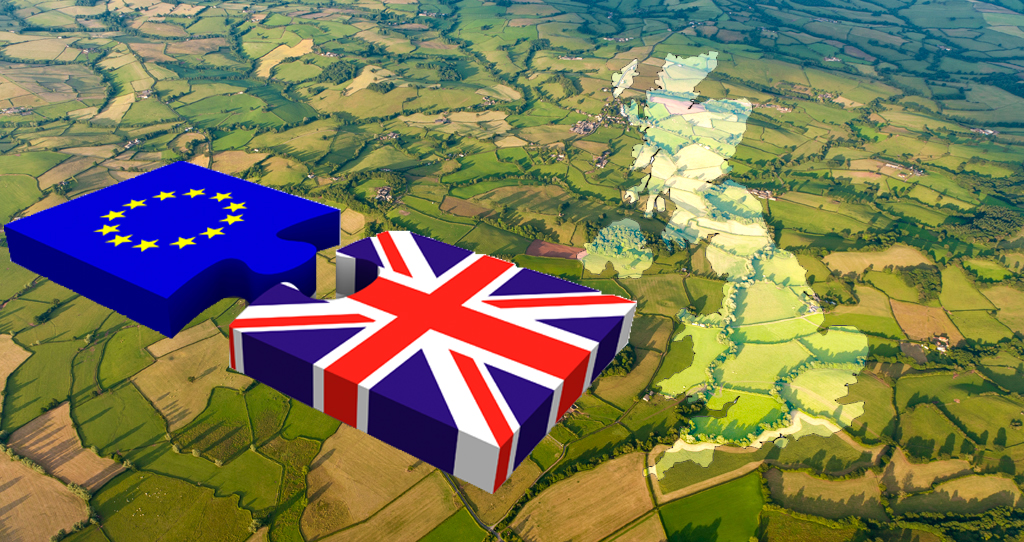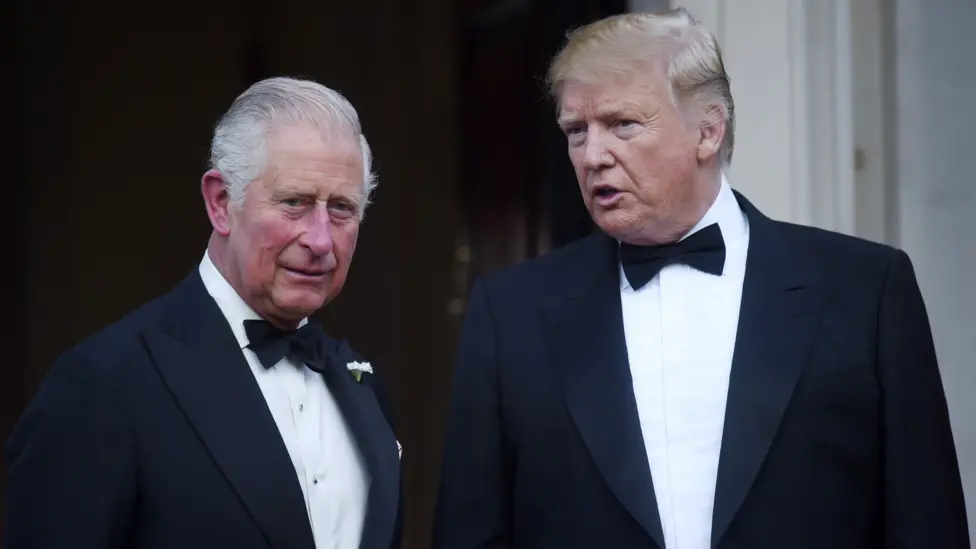Comment
COMMENT: Take down more flags

By Award Winning Herald Columnist, Matthew Paul
Well, you did it, you bastards. You won. At 11pm today, the UK will have left the European Union.
This hasn’t occasioned the cataclysm that –until 13th December– the turbulent Brexit process might have led us to expect. The weeks since Boris Johnson’s thumping majority made Brexit an inevitability have been an anticlimax on the scale of The Godfather Part III. Three and a half years of high political drama have ended in six weeks of Brexit bathos.
On Wednesday, our representatives in the European Parliament packed up their desks, emptied their lockers and –heavy of heart and misty of eye– signed off their final, Brobdingnagian claims for expenses. Pro-EU MEPs linked arms, waved EU flags and sang a maudlin rendition of Auld Lang Syne. In return, EU president Ursula von der Leyen told the UK she loved us and always will.
The love-in lasted about three minutes, until Nigel Farage, flanked by his gang of gruesomes, stood up to crow. In the graceless and disruptive manner he has diligently maintained over twenty years in the Parliament, Nigel rubbed fellow MEPs’ noses in the Brexit Party’s mess until the mike was switched off. Then his cohort started waving little Union flags so enthusiastically you might have assumed Prince Harry had come back. Divorced.
The European Union (Withdrawal Agreement) Act 2020 passed through Parliament without a murmur of disapproval, a court case, any perversions of Parliamentary procedure or even a self-indulgent ORRRRDDEEEEEERRRRR from the excellent and austere new Speaker, Lindsay Hoyle. At sundown, EU flags will be taken down from public buildings around the UK and furled forever, in a melancholy echo of the last time Britain’s influence in the world seriously declined. All except in that bastion of Brexit resistance, the Scottish Parliament, where Nicola Sturgeon –under what legal authority it is unclear– has decreed that the twelve stars will stay put. Mark Francois no doubt imagines himself jogging up to Edinburgh with a crack TA troop to tear it down from Holyrood in a reverse Iwo Jima.
South of Hadrian’s Wall, the mood amongst Remainers is one of defeated realism. Re-joining on the terms available to accession countries is not a serious option; the EU has gone and it ain’t coming back. Even Plaid Cymru –after getting utterly pasted in December’s election, largely because their ur-Remainy stance went down like a cup of cold sick in the valleys– aren’t clinging to dreams of readmission to the continental club.
Now, having got your damned Brexit, you now have to work out what to do with the thing. What was the point of leaving the EU? There are some fairly compelling reasons to be out of Europe if you incline to the Corbynite hard left, because the Commission always had unhelpful things to say about confiscatory taxation and state aid for lame duck nationalised industries. Get Brussels out of the way and you are only a few strands of barbed wire and an empty supermarket away from the usual sort of socialist paradise.
On the right, the intellectual arguments of economically liberal Brexiters have always had force. There can and will be advantages to an economy where barriers to free trade are removed, where business is freer to hire and fire, and where innovation in our tech, pharmaceutical and agri-business sectors is not restrained by regulation which adheres too closely to the precautionary principle. Intellectual arguments are all very well, but the difficulty is that this hasn’t typically been the kind of economy or society around which a political consensus has settled.
Before the General Election, in a political landscape where a powerless Prime Minister was bossed around by a hopelessly divided Parliament, it was hard to expect that much could be achieved by leaving the European Union. Now, we have a PM more powerful than any British politician since Tony Blair in 1997; with just as much of a mandate to change the country. To benefit economically from Brexit, he will have to be prepared to do things that are very, very unpopular.
Round these parts, things that damage the livelihoods of farming communities are likely to be pretty unpopular. But this week we saw Boris inviting a stampede of half-starved, flystruck Ugandan cows into the UK meat market. “I have just told President Museveni of Uganda” he said –following a conversation quite different from the sort of Ugandan discussions with which our Prime Minister is usually associated– “that his beef cattle will have an honoured place on the tables of post-Brexit Britain.” What is good news for herdsmen around Kampala won’t be so well-received in Knighton, Keswick or Kirkaldy.
Boris will also have to decide whether we are a country closer to Europe or America. If we choose the latter, and unless the US Democratic Party seriously ups its game, we will be saddled with another four years of having The Donald as our psychopathic cell mate in a prison we built for ourselves. It’s in our interest to keep him happy, but this week’s decision to allow Huawei –the tech equivalent of coronavirus– to supply hardware for Britain’s 5g mobile networks was like carelessly reaching for the remote control in the middle of one of Trump’s favourite TV shows. There are worrying noises coming from the top bunk, as of someone sharpening a shiv to use on us in the first round of post-Brexit trade talks.
So, residents of workless Labour-voting constituencies in South Wales; farmers who didn’t like filling in the subsidy forms; anyone who hates being bossed around by foreigners but doesn’t count Donald Trump amongst their number. You voted for it. You got it. It’s here. Enjoy it; it’s going to be a wild ride.
Comment
Holocaust Memorial Day: The gas chambers didn’t just appear

Opinion piece by Herald editor Tom Sinclair
TODAY is Holocaust Memorial Day, January 27, 2026. Across Wales we remember the six million Jews murdered by the Nazis, and the Roma, disabled people, gay men and women, political opponents, and many others the regime labelled undesirable. We light candles, say “never again”, and tell ourselves that kind of evil is locked in the past.
But if remembrance ends at the gates of Auschwitz, we miss the real lesson.
The Holocaust did not begin with gas chambers or cattle trucks. It began in ordinary places, shops, streets, pubs, council chambers, with words that stripped people of their humanity, laws that pushed them to the margins, and propaganda that turned neighbour against neighbour. It began when ordinary people started seeing others as problems, as threats, as not really belonging.
It began with politicians pointing fingers at who to blame.
With newspapers branded enemies of the people.
With courts and rules quietly bent.
With minorities held responsible for hard times.
With cruelty sold as common sense.
And above all, it began with silence.
Last week in Milford Haven, I saw that silence in action.
A shopkeeper, someone who came here from another country, set up a business, pays his way and serves the town, was racially abused inside his own shop. He tried to stop a man walking out with unpaid beer. For doing his job, he was told to “go back home”, told he was not welcome. The thief responded by sweeping stock off the shelves and smashing it onto the floor.
I asked why he did not ring the police. His answer came straight away. “What’s the point? They won’t do anything. It’ll just happen again tomorrow.”
That exchange stuck with me. Not because it was uniquely shocking, but because it felt horribly familiar. No new laws. No uniforms. No symbols. Just raw contempt, casual racism, and the shared understanding that nothing would come of it. A man contributing to the community was made to feel like an outsider in his own workplace, and he had already lost faith that anyone would step in to protect him.
This is how it starts. Abuse becomes normal. Victims stop reporting because experience has taught them the system will not respond. Prejudice is dismissed as “just words” or “banter”. Indifference takes hold.
We are often told not to make comparisons, not to be alarmist, not to link today with that past. Fair enough. History does not repeat itself in neat patterns. But it does move in stages, and the most dangerous stage is the one people fail to notice. The slow normalisation of division, cruelty and disregard.
In towns like Milford Haven, Haverfordwest and Pembroke Dock, places built on hard work and looking out for one another, we know what community means. We have weathered closures, recessions and hardship together. We do not turn away when one of our own is targeted.
Yet when a shopkeeper loses faith that the police or the public will stand with him, something vital erodes. When hate goes unchecked, the ground is quietly prepared for worse.
Holocaust Memorial Day is not about guilt. It is about vigilance. It asks the hardest question of all. Not what monsters once did, but what ordinary people allowed by doing nothing.
The worst crimes in history were not announced in advance. They were built quietly, policy by policy, lie by lie, while too many looked the other way.
That is why we still remember today. And why, in our Welsh towns, remembering must mean refusing silence.
If you see it, say something. If you hear it, challenge it. If someone is targeted, stand with them. Because “never again” only holds if we make it hold, here and now, in the places we live.
Comment
When the System Decides: AI, authority and the quiet loss of human judgment

OPINION: BY PAUL DOWSON
ARTIFICIAL INTELLIGENCE is no longer a future technology. It is not waiting for legislation, ethical consensus, or public debate. It is already here, embedded in systems that exercise immense power.
AI is in our warplane cockpits.
That single fact should change the entire conversation. This is not about chatbots or convenience. It is about authority: who holds it, who hides behind it, and who is left accountable when things go wrong.
In modern military aircraft, AI systems assist with navigation, threat detection, targeting support, and reaction timing. They operate at speeds no human can match. The case for their use is compelling. Machines do not panic, tire, or hesitate. In combat environments, hesitation costs lives.
So why should we be concerned?
Because the real risk of AI is not that it will suddenly develop malicious intent. That idea belongs to science fiction and distracts us from a far more ordinary, and far more dangerous, reality. AI is increasingly treated as neutral.
Neutral systems are trusted. Trusted systems stop being questioned. And what is no longer questioned quietly becomes authority.
We already live under layers of process. Decisions are routinely explained away with phrases like “policy”, “procedure”, or “the system”. AI is the most powerful extension of this trend yet. It produces outcomes while making it harder to say who actually decided.
In civilian life, this is already happening in areas such as welfare and public services. Eligibility decisions are increasingly shaped by automated scoring systems. Someone can be denied support, flagged for investigation, or pushed down a queue not because a person made a judgment, but because “the system says” they do not qualify. The outcome feels final, yet the assumptions embedded in the model are rarely visible, and almost never open to meaningful challenge.
When responsibility is pushed into a system, accountability evaporates. No one “decided”. The model ran. The process was followed.
I have seen first-hand how “objective” systems can be steered toward particular outcomes without anything that looks like corruption. It does not require conspiracies or secret meetings. It happens through design: what data is used, what is left out, how success is defined, how risk is weighted.
To the public, the result looks inevitable.
To those who understand the system, it is engineered.
AI magnifies this effect dramatically. Once systems become complex enough, very few people can meaningfully challenge them. “The model says” becomes the end of the conversation. Questioning outcomes starts to sound like ignorance rather than scrutiny.
Supporters of AI are right: automation has already saved lives. Aircraft are safer today precisely because computers assist, and sometimes override, human pilots. In dangerous environments, AI can see more, calculate faster, and respond sooner than any person ever could.
Refusing to use such tools would be irresponsible.
That argument deserves to be taken seriously. But it still misses the deeper issue.
What starts as assistance becomes reliance.
Reliance becomes deference.
And deference becomes authority.
Over time, humans stop deciding and start supervising. The human becomes the back-up. Judgment becomes confirmation. The key question quietly shifts from “Is this the right decision?” to “Is there any reason to override the system?”
That shift matters. Because once humans are no longer the primary decision-makers, responsibility becomes a formality rather than a reality.
We are told AI can be audited. In theory, yes. In practice, real scrutiny requires expertise, access, and the power to challenge outcomes. Most people, including many decision-makers, do not have these. For them, the system’s output is effectively unquestionable.
And systems are never neutral. They reflect priorities: military objectives, political pressures, funding decisions, strategic advantage. AI does not remove human values from decisions. It buries them beneath complexity.
What is happening in military aviation will not remain confined there. The same logic is already spreading into finance, policing, welfare systems, hiring decisions, and border control. Everywhere AI is positioned as an objective arbiter, responsibility becomes harder to locate and harder to contest.
The greatest danger is not that machines will decide badly. It is that humans will lose the habit, and the authority, of deciding at all.
I support AI. Its potential is extraordinary. Used properly, it can enhance human judgment, reduce error, and save lives. But if we fail to shape how it is deployed, we risk building systems that do not supplement us, but quietly replace us.
AI does not need consciousness to reshape power.
It only needs our trust.
And trust, once handed over, is rarely reclaimed.
Author bio

Paul Dowson is a former independent county councillor in Pembrokeshire (2017–2022) and has spent his career in business management and communications. He supports the adoption of artificial intelligence where it strengthens human decision-making, but argues it must never become a substitute for accountability or judgment.
Comment
Should the King cancel the US state visit in April? Yes — and he should say why

OPINION – BY TOM SINCLAIR, EDITOR
THE KING is not a politician. He is, however, the Commander-in-Chief of the British Armed Forces. That distinction matters, because it draws a line between everyday diplomacy and something more fundamental: respect for service, sacrifice, and the people this country asks to stand in harm’s way.
On that basis, the scheduled state visit to the United States in April should not go ahead as planned. It should be postponed indefinitely — and the reason should be made clear, quietly but firmly: Britain will not wrap ceremonial honour around rhetoric that demeans those who serve.
That is the crux of it. The issue is not a petty spat, a bruised ego, or an argument about “who said what” on social media. It is the principle of how allies speak about allied forces — and whether the United Kingdom is prepared to smile, toast and wave through remarks that, in the eyes of many serving personnel, veterans, and military families, amount to a straight insult.
You can hear it in the public reaction. People who would rarely write to a King or comment on foreign policy are suddenly saying the same thing in plain language: if the Head of the Armed Forces carries on regardless, it feels like a slap in the face to those who “stood the line” — and to the families of those who did not come home. Some are calling for a postponement “until there is an apology”. Others say: don’t postpone — cancel. Underneath the anger, there is a consistent instinct: dignity matters, and so does loyalty.
Now add the awkward history. Not so long ago, Donald Trump received the full ceremonial treatment in Britain. A banquet. The gold-trimmed theatre of state. All presented as diplomatic necessity, above politics, in the national interest.
Did it work? Did it moderate language, build respect, reduce volatility, improve conduct? If anything, it taught the opposite lesson: that Britain will keep offering prestige even when it gains nothing in return. The Crown’s soft power was put on display, and the recipient treated it like another trophy.
That is why doing it again now would be worse than a mistake. It would be a pattern.
Supporters of the trip will reach for the familiar argument: Britain’s relationship is with the United States, not with one individual. And that is correct. Defence, intelligence, trade and security cooperation are too important to be thrown around as gestures.
But a state visit is not the machinery of government. It is the highest honour we can confer. It is symbolism in its most potent form. It is an embrace.
And there is a difference between continuing diplomacy and offering ceremony.
Britain can and should continue the serious work through ministers, ambassadors, defence chiefs and officials. That work is robust enough to survive a postponement of pageantry. What it cannot survive — at least not without cost — is the impression that the country’s top symbol of service is prepared to overlook contempt directed at service.
There is also a constitutional realism that needs saying out loud. The King does not freelance. He acts on ministerial advice. That means the responsibility for this does not sit with one man in one palace. It sits with the government of the day. If the visit goes ahead, it will not be interpreted internationally as a “neutral royal engagement”. It will be interpreted as a British national choice.
Which raises a simple question: why would Britain choose, voluntarily, to place its Commander-in-Chief into the middle of America’s partisan furnace — where every handshake becomes a headline and every photograph becomes a message?
The monarchy’s strength is that it is not supposed to take sides. Yet the more polarised the environment, the harder neutrality is to maintain. A state visit in April risks being treated as an endorsement by one camp and a provocation by the other. That is not only unfair to the King; it is dangerous for the institution. No head of state should be used as a campaign prop, least of all one whose constitutional role depends on being above the fight.
So what should happen?
The government should advise postponement on grounds that are unarguable and non-partisan: respect for allied forces and the need to keep the Crown out of domestic political controversy abroad. The Palace should keep the language measured: a desire to reschedule at a more appropriate time, in a way that reflects the enduring UK-US relationship and the importance of mutual respect between allies.
And if there is to be a condition for reinstating the visit, it should be simple: a clear, public reaffirmation of respect for NATO service personnel and the sacrifices made by military families. Not a grovelling performance. Not a media circus. Just a statement of basic decency that any ally should be able to make without choking on it.
Some will say Trump never apologises. That may be true. But the point is not to choreograph an apology. The point is to stop granting honours as if they are automatic.
Because Britain has already tried the “butter him up and hope for the best” approach. We’ve seen the banquet. We’ve watched the pageantry. We’ve heard the rhetoric continue.
At some stage, a grown-up country has to decide what it will and won’t dignify.
If the King is the head of our armed forces in name, then he must be the head of our armed forces in meaning too. That means he cannot be asked to raise a glass to a man whose words have demeaned the very people the Crown is meant to honour.
Postpone the state visit. Keep the diplomacy. Protect the institution. And, above all, stand by the men and women who stood for us.
-

 Health5 days ago
Health5 days agoConsultation reveals lack of public trust in health board
-

 News6 days ago
News6 days agoCaldey still unsafe, survivors warn — despite Abbey’s reform claims
-

 Community5 days ago
Community5 days agoPembrokeshire students speak at national Holocaust Memorial Day event
-

 News6 days ago
News6 days agoKurtz raises Gumfreston flooding in the Senedd as petition deadline nears
-

 Crime7 days ago
Crime7 days agoMan denies murdering brother as jury hears of ‘ferocious attack’ at Morriston flat
-

 Community7 days ago
Community7 days agoStorm Chandra: Morning impacts across Pembrokeshire
-

 Entertainment7 days ago
Entertainment7 days agoRapunzel brings festive magic to Torch Theatre
-

 Education5 days ago
Education5 days agoAttendance concerns at Milford School reflect wider issue raised at the Senedd

























